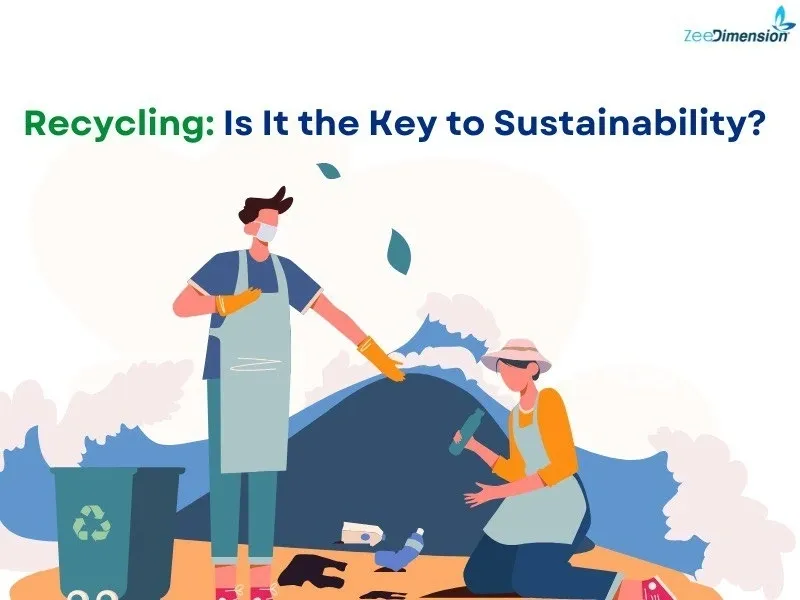
Recycling is often seen as a key solution to our environmental problems. It helps us save resources, reduce waste, and lower pollution. But is it as great as it seems? While recycling has many advantages, it also comes with some challenges. In this blog, we’ll look at the good and the bad of recycling. We’ll explore its benefits, such as conserving natural resources and protecting the environment, and also discuss the issues it faces, like contamination and high costs. Finally, we’ll talk about ways to make recycling more effective and what role we can all play in making it better.
What are the 5 benefits of recycling?
1. Conserves Resources
Recycling conserves valuable resources such as timber, water, and minerals. For example, recycling paper decreases the need to cut down trees, which helps to maintain our forests and promotes a healthier ecosystem.
2. Saves Energy
One of the primary benefits of recycling is energy conservation. Recycling aluminum can save up to 95% of the energy used to manufacture it from raw sources. This large energy savings helps to reduce total power consumption, resulting in cheaper energy costs and a lower carbon footprint.
3. Reduces Landfill Waste
Recycling allows us to keep more waste out of landfills, which reduces pollution and improves land use. Less trash implies less toxic leachate and methane gas emissions, resulting in a cleaner environment.
4. Protects the Environment
Recycling is critical to minimize environmental effects. It reduces pollution by reducing the extraction and processing of raw materials, which can result in risky emissions and environmental degradation. It also helps lower greenhouse gas emissions, contributing to the fight against climate change.
5. Creates Jobs
Recycling is not only helpful for the environment, but it also benefits the economy. Recycling provides more jobs per ton of waste than landfilling or incineration. This generates new employment possibilities and benefits local economies.
What are the challenges of recycling?
-
Resource-Intensive: Energy and resources are required to collect, transport, and process recyclable materials.
-
Contamination Issues: Non-recyclable materials in bins can spoil entire batches, raising prices.
-
Expensive Operations: Recycling certain materials might be more expensive than producing new products.
-
Market Limitations: Recycled materials are dependent on market demand. Low demand results in discarded recyclables.
-
Downcycling: Some materials, such as plastics, lose quality and utility when recycled.
-
Pollution Risks: Mismanaged electronic or hazardous material recycling might result in the emission of harmful pollutants.
How Do We Maximize Recycling’s Impact?
To maximize the impact of recycling, we need to take a multi-faceted approach. Investing in advanced technology is key; improved recycling systems can help reduce waste and contamination, making the process more efficient and effective. Equally important is educating communities about proper recycling habits, as this can significantly improve the quality and quantity of materials collected. Another crucial step is adopting a circular economy model, where products are designed for reuse and easier recycling, ensuring that materials stay in use longer and reduce the need for raw resources. Finally, supportive legislation plays a vital role by implementing policies and incentives that promote recycling and waste reduction, helping to create a stronger foundation for sustainable practices. By combining these strategies, we can create a system that supports a cleaner environment and a more resource-efficient world.
Conclusion
Recycling may not be a perfect solution, but when managed properly, the advantages far exceed the drawbacks. We can make recycling an even more potent instrument for developing a sustainable future by constantly improving methods and welcoming new ideas. Each of us must evaluate our involvement in this effort are you mindful of your recycling practices? Your tiny activities can help to bring about a larger transformation. Share your thoughts and ideas to assist improve recycling habits and motivate others to join in on the beneficial impact.
Companies that value sustainability and want to make a real impact need to hire people who are knowledgeable about ESG practices. This means having team members who understand sustainability and are committed to responsible practices. Adding certified training or online courses from reputable organizations can give your team the edge they need. The Zedimension Institute offers a range of professional courses in sustainability to help you and your team stay ahead and make a difference.







